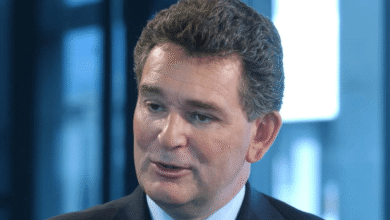Dirt Isn’t the Enemy—Neglect Is: Rethinking Home and Office Hygiene

We often treat cleanliness as an afterthought, something we chase once things spiral out of control. Dust collects, corners darken, and odors creep in—not because dirt is inherently overwhelming, but because our routines neglect the tiny daily decisions that prevent buildup. What if we flipped the script and viewed cleanliness as proactive rather than reactive?
Whether it’s your home sanctuary or your commercial workspace, the key to sustained cleanliness isn’t a deep clean every few months—it’s consistent, small efforts reinforced by structured planning, mindfulness, and when necessary, professional help.
What Clutter Actually Costs You
Think of the time you’ve spent hunting for lost keys in a cluttered kitchen, or the frustration of walking into a room that feels visually chaotic. The mental toll is real. Clutter creates micro-stressors that, while small in isolation, collectively sap focus and energy.
House cleaning services offer relief from this invisible tax. Not only do they handle the physical mess, but they help reset environments so you can operate with greater efficiency. Yet even without outsourcing, the principle remains: cleanliness conserves mental and emotional bandwidth.
Cleaning as a Lifestyle Rhythm
A clean home or office isn’t the result of a single burst of motivation. It’s built from recurring rhythms—morning wipe-downs, weekly laundry, quarterly deep cleans. These rhythms create stability, much like eating well or getting adequate sleep.
For example, the best approach to deep cleaning isn’t to wait until spring. A more effective system is to assign specific zones to each month: focus on kitchen appliances in January, windows in February, baseboards and carpets in March, and so on. By rotating attention throughout the year, no part of your space ever becomes overwhelming.
Similarly, commercial cleaning services that work on structured schedules—whether weekly or biweekly—tend to deliver better long-term results than sporadic cleanups. Consistency, not intensity, builds cleanliness into the DNA of a space.
Clean Environments and Physical Health
It’s easy to overlook how much physical health depends on a clean environment. Dust mites trigger allergies, mold spores irritate lungs, and bacteria multiply on unwashed surfaces. Yet, when spaces are routinely sanitized, the frequency of illness drops.
Deep cleaning isn’t just about aesthetics—it’s about sanitization. A thorough cleaning targets high-touch areas like doorknobs, switches, remote controls, and keyboards—areas teeming with unseen microbes.
In shared work environments, cleanliness reduces the spread of pathogens and minimizes downtime from employee sick days. For households, it means fewer colds, fewer skin irritations, and better overall air quality.
The Overlooked Corners: Where Neglect Hides
We all have our “blind spots”—those corners of the home or workplace we rarely look at. Think: air vents, behind appliances, the tops of cabinets, under desks. Over time, these areas accumulate layers of dust, debris, and allergens.
This is where the value of professional cleaning services becomes apparent. Unlike casual wipe-downs, trained cleaners recognize and address these zones. Services like Sapphire Home Cleaning routinely address such overlooked areas, helping clients truly refresh their environments.
This attention to detail also extends to commercial cleaning services, where entryways, under-conference tables, and even elevator buttons need careful sanitation.
Deep Cleaning: Not Optional, but Essential
Deep cleaning is often positioned as a luxury, but it’s more accurately a requirement—especially in high-traffic homes or offices. Kitchens, for example, may look tidy but harbor oil residues, food bacteria, and hidden crumbs that attract pests. Bathrooms need descaling and disinfection beyond the weekly wipe.
Deep cleaning acts like a reset button. It clears the clutter from both visible and hidden spaces, revitalizes air quality, and restores the integrity of surfaces and fabrics. Incorporating it every quarter is a smart, preventative approach rather than a reactive one.
Commercial Cleaning Services and Business Image
First impressions matter. A clean office or storefront tells customers that you value professionalism and attention to detail. Dusty shelves, stained carpets, or smudged glass doors create the opposite effect—even if your services are top-notch.
This is where commercial cleaning services have dual value. Beyond health and hygiene, they reinforce brand trust. Clean spaces reassure clients and customers that they’re in a safe and competent environment. Staff members, too, feel a greater sense of pride and motivation in well-maintained workplaces.
Let Cleanliness Inform Your Habits
Consider what your environment says about your priorities. Is your entryway welcoming? Does your desk encourage productivity? Are your shared spaces inviting and functional?
Every room is a message. Clean spaces whisper “care,” “calm,” and “readiness.” Messy ones shout “neglect,” “overwhelm,” or “delay.”
To improve your habits, improve your space. Establish entry routines (like removing shoes and wiping surfaces), adopt quick end-of-day resets, and make tidiness a family or team value. The cleaner your environment, the easier it is to build habits that support health and efficiency.
The Role of Professionals in a DIY Culture
There’s pride in DIY cleaning, and rightly so. But knowing when to call in reinforcements is equally important. Not every mess is surface-level. Some require specialized tools, cleaning agents, or knowledge that only trained professionals possess.
Brands like Sapphire Home Cleaning cater to this hybrid model—offering support where needed while encouraging day-to-day ownership by clients. It’s a partnership rather than a replacement. You manage the daily upkeep; professionals handle the periodic resets.
The Emotional Payoff of a Clean Environment
There’s an almost instant emotional lift that follows a good cleaning session. A tidy room feels larger, brighter, and more peaceful. This isn’t just placebo—our brains are wired to respond positively to order and cleanliness.
The scent of freshness, the gleam of polished surfaces, and the lack of visual clutter create a tranquil atmosphere. It’s no surprise that people sleep better, work harder, and feel more grounded in clean environments.
Even small gestures—like fluffing cushions, organizing bookshelves, or shining mirrors—can have outsized emotional returns.
Final Thoughts
Cleanliness is more than a visual aesthetic—it’s a way of showing up for yourself and those around you. It influences how we feel, how we work, and how we relate to our environment. While DIY efforts form the backbone of daily maintenance, periodic help from professionals elevates cleanliness from task to strategy.
With brands like Sapphire Home Cleaning, people and businesses alike find that investing in their environment returns far more than a polished floor or gleaming sink—it creates space for clarity, confidence, and calm.




